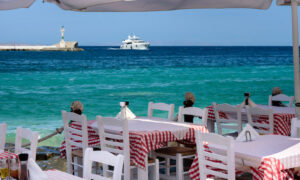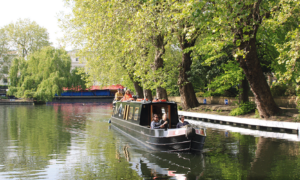This sounds like one of those clickbait headlines: “Do this one thing to live a longer, healthier life.” But it’s true – by simply adopting the expat lifestyle in Europe, Americans instantly improve the their statistical odds of living a longer, healthier life.
Every health and lifestyle website from Medium to goop constantly posts about “the 10 things you can do to improve your health and outlook right now!” And they’re all pretty much the same – eat fewer carbs; get some sleep and for crying out loud, cut down on all that booze.
Good advice. It just isn’t working.
Witness the banner headlines in November 2019 on the Washington Post, The Hill and other new sites – “More Americans dying young.” “There’s something terribly wrong; Americans are dying young at an alarming rate” and ” ‘A distinctly American phenomenon’: Our workforce is dying faster than any other wealthy country, study shows” in USA Today.
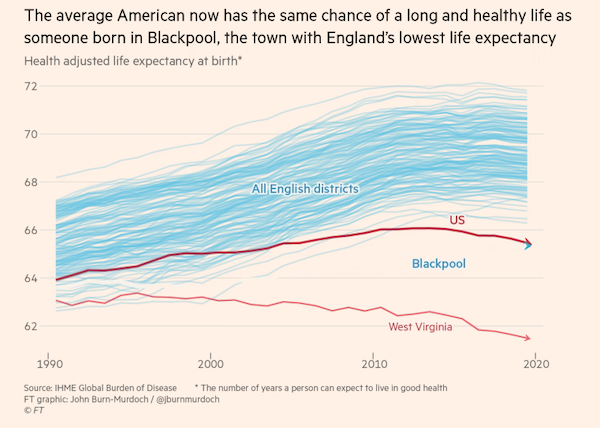
Flash forward more than three years later and instead of stabilizing, that trend is accelerating. Post after post in early 2023 about recent studies at Harvard Medical School and other institutions indicate that life expectancy in the United States continues to decline at an alarming rate.
NPR has a post about how maternal and child mortality – declining for decades – is now rising at an unprecedented rate.
From that post:
“This is the first time in my career that I’ve ever seen [an increase in pediatric mortality] – it’s always been declining in the United States for as long as I can remember,” says the JAMA paper’s lead author Steven Woolf, director emeritus of the Center on Society and Health at Virginia Commonwealth University. “Now, it’s increasing at a magnitude that has not occurred at least for half a century.”
The Financial Times has a new post, “Why are Americans Dying so Young?”, stating that the average American has the same expectation of a long and happy life as a Brit living in Blackpool, the most deprived town in England, with the lowest life expectancy. The post notes that America’s mortality problem “is driven primarily by deaths among the young.”
The trend first emerged after the American Medical Association published a 2019 study by researchers at Virginia Commonwealth University showing that, unlike the rest of the developed world, life expectancy is declining in the U.S.
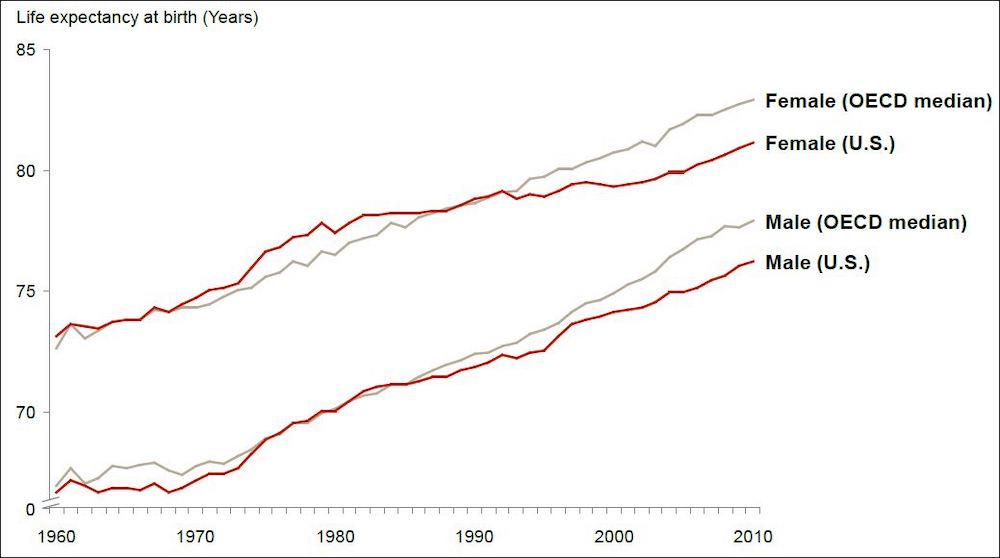
From the JAMA abstract:
During 2010-2017, midlife all-cause mortality rates increased from 328.5 deaths/100000 to 348.2 deaths/100000. By 2014, midlife mortality was increasing across all racial groups, caused by drug overdoses, alcohol abuse, suicides, and a diverse list of organ system diseases.
This increase in mid-life mortality is dramatic enough to cut American life expectancy three years in a row … to 78.6 years in 2017 from 78.9 years in 2014.
As an American expat living in the Netherlands, I can tell you the U.S. is a far more stressful place to live than Europe. Just by adopting the expat lifestyle and moving to Europe, we alleviated or eliminated a lot of those stressors.
• Simply because we moved to the Netherlands in 2016, our life expectancy is now about 81.5 years compared to 77.28 (and dropping) in the States. If we move to Monaco, that projection will rise to 89 years. Moreover, we’ll have more money to enjoy those extra years. (We’d better if we’re living in Monaco.)
According to HSBC’s annual expat survey, the “average” expat adds about $21,000 to their annual salary by taking an overseas assignment. (We’re talking about management types, financial whizzes, physicists, engineers and highly skilled internationals.) About half the expats responding to the bank’s Expat Explorer survey say they got more money for the same job by moving abroad, while 28 percent said they got a promotion.
• No more $700-per-month premiums for health insurance policies in the U.S. that were a joke and didn’t really cover anything. Talk about a stressor. Now we pay 300 euros per month to participate in the Dutch national healthcare plan covering everything. The big difference is the deductible – $9,000 in the U.S per year for our family (you read that correctly – $9,000) versus 385 euros per person per year in the Netherlands.
Every country in Europe is high on Bloomberg’s annual list of the healthiest countries in the world with Spain, Iceland, Switzerland and Italy at the very top. Why? Because they all have nationalized healthcare systems the Americans eschew as oppressive socialism. Americans talk a lot about “freedom,” which includes the freedom to be chronically ill, then indigent when you can’t pay your hospital bills.
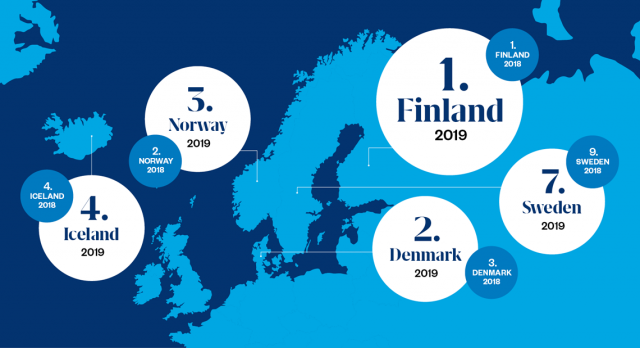
• We’re happier, or at least surrounded by happy locals. Finland, Denmark, Iceland and the Netherlands always rank at the top of the United Nation’s World Happiness Report.
Theoretically, this means we’ll be less likely to use heroin, drink ourselves to death or eat ourselves to death because we’re having more fun hanging out with friends at cafés, traveling, getting out and about more often and having more sex. Which the Europeans do a lot more (and some say better than) Americans. No, really …. and who knew the Swiss were so hot to trot?)
• No more driving everywhere. We use public transportation – trains and buses – much of the time when we need to go to the major business centers such as Rotterdam, Amsterdam and Den Haag. When we arrive, we walk. A lot, whether it’s for business or leisure.
• More regulation of opiates and doctors, who don’t hand out meds like candy. In the Netherlands, doctors are famous for prescribing Paracetamol (acetaminophen) for everything from a headache to a broken leg dangling at the end of a ligament. Antibiotics? What are those?
By comparison, we just hosted an American friend who told stories of doctors insisting his wife take a full regimen of OxyContin, the opiate that started the whole addiction plague in the U.S., for pain that could have been controlled by over-the-counter meds. Why? Because prescribing opiates is good business.
• A lot less bad food. When we lived in the U.S., the pizza delivery guys had our address memorized. Here, we cook at home most of the time, and we go to the market almost every day because we have to. There aren’t nearly as many preservatives in Europe, so food goes bad much faster. Also, we have multiple refrigerators/freezers, but about half as much space as our apartment in the U.S.
A combination of better, less expensive food, fewer calories and far less stress have turned some parts of Europe, including Greece and Sardinia, into “Blue Zones,” celebrated as places “where people forget to die.”
There are even documented accounts of people diagnosed with terminal diseases going to these Blue Zones and recovering.
By and large, we’ve found this just a healthier lifestyle. And we’re working on the booze thing, but we entertain a lot and quality spirits, wine and beer are a lot less expensive here.
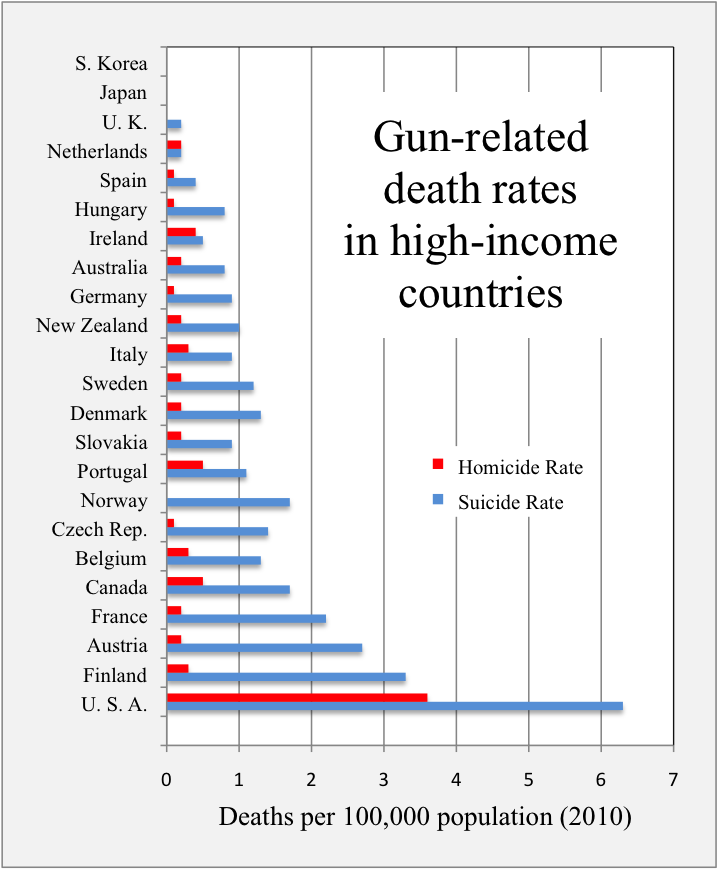
• No gun violence. In the U.S., the odds of dying in a shooting – intentional or accidental – and an auto accident are statistically about the same … though those odds vary widely depending on where you live. In 2017, firearms killed 39,773 Americans, and traffic deaths killed 38,659. Gun ownership in the U.S. is three times higher than in Montenegro, the European country with the highest rate of gun ownership.
I couldn’t find aggregate gun-death statistics for Europe. But I found that the Netherlands, for example, has .58 gun-related deaths per 100,000 people. The U.S. has 12.21 gun-related deaths per 100,000!
The full story is that Germany, France, Finland and other countries have a lot of suicides by gun. But homicide rates are incredibly low compared to the U.S.
• Less of a rich/poor divide. A lot of Americans are aging and desperate. Young people with multiple jobs in the gig economy have a hard time making ends meet and the rich/poor divide is ever wider. In Europe (excluding Great Britain) the wealth gap isn’t as pronounced. A whopping 80 percent-plus of Dutch and Danes, for example, are middle class as opposed to about 50 percent of Americans. The social safety net is far larger and far more robust.
As I’ve acknowledged many times, no one will ever confuse Europe for Utopia. Which is why anti-Macron demonstrators in France, the Far Right in Germany, the pro-democracy forces in the Czech Republic and Hungary are in the streets nearly every week.
Personal income taxes in Western Europe are – for the most part – higher than in the U.S., though they pay for infrastructure that’s lightyears ahead of America. There are value-added taxes here and even taxes on radios and TVs in some European countries. But there’s also free or nearly free education, with college debt yet another life stressor crossed off the list.
A fair number of Americans come to Europe for their careers and long for the things back home that drive me crazy … drive-thrus, Wild West capitalism, the weird excesses from McMansions to super-sized sodas, religious extremism that passes for piety and a longing for Good Old Days that never existed.
In other words, “freedom.”
In Europe, it’s about balance – balancing the libertarian with the authoritarian. The individualists with the collectivists. Unlike Americans, Europeans – left and right – tend to err on the side of societal restraint.
“Freedom” here doesn’t include indulging the worst instincts and self-destructive behaviors that in the end damage everyone.
Read more about the European economic model and lifestyle here in the NYTimes post, “Finland is Capitalist Paradise”
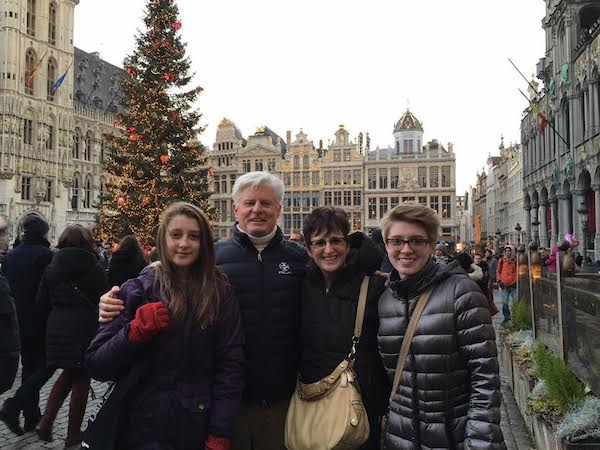
About the author:
Terry Boyd is co-founder of Dispatches Media, based in Eindhoven, Netherlands. Boyd has been a military reporter, business reporter and an entrepreneur, founding Insider Louisville, a pure-play digital news platform, in 2010.
Boyd & Family are long-time expats and have lived in Turkey, Germany and the Netherlands.
Co-CEO of Dispatches Europe. A former military reporter, I'm a serial expat who has lived in France, Turkey, Germany and the Netherlands.




